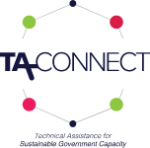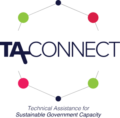No fewer than 972,249 pregnant women have been enrolled in Group Antenatal Care (GANC) across five of the seven states (Kano, Kaduna, Nasarawa, Yobe, Borno) where TAConnect is providing Technical Assistance to governments and partners for the implementation of the GANC intervention between January 2021 to September 2022.
Improving maternal and neonatal outcomes is a major priority in Nigeria. Despite efforts targeted at addressing maternal deaths across national and sub-national levels, the maternal mortality ratio has remained high in Nigeria in the last two decades, with the country currently accounting for about 20% of global maternal deaths. According to the World Health Organization (WHO), the MMR for Nigeria is 814 (per 100,000 live births).
Through funding from the Bill & Melinda Gates Foundation, TAConnect supports state governments via its network of TA partners in Nigeria to advance a viable alternative paradigm to the conventional method of ANC, with a focus on higher patient satisfaction and maternal and neonatal outcomes.
TAConnect pioneered the implementation of the G-ANC project in Nigeria, an outcome-oriented intervention that envisions increased utilization of life-saving high impact interventions (HII) delivered within the confines of Reproductive, Maternal, Newborn, Child, and Adolescent Health Services (RMNCAH). Through a mix of system strengthening efforts and demand generation activities, the GANC project deploys an innovative and cost-effective approach to increase the utilization of facility delivery, IPTp, and active case detection of Malaria in Pregnancy (MiP) and reduce gaps in the uptake of high impact interventions along the continuum of pregnancy, delivery, newborn, and postnatal care.
ANC conventionally takes the form of a one-on-one consultation between a pregnant woman and her health-care provider. However, group ANC integrates the usual individual pregnancy health assessment with tailored group educational activities and peer support, with the aim of motivating behaviour change among pregnant women, improving pregnancy outcomes, and increasing women’s satisfaction. Women remain in the same group throughout their pregnancy, thereby enhancing information sharing and peer support among group members.
Impact on RMNCH Outcomes
Group Antenatal Care has many benefits for mothers and their babies. It has been associated with improved attendance and pregnancy outcomes in low-resource setting. In Group Antenatal Care settings, evidence has shown that women are more likely to attend all their prenatal appointments, and they are less likely to experience serious pregnancy complications such as pre-eclampsia and eclampsia.
Program results demonstrate the effectiveness of GANC in improving comprehensive maternal and child health (MCH) outcomes among women receiving RMNCH+N services. Evidence from Kaduna, Nasarawa, Kano Yobe, Borno and other states where TAConnect and its partners are providing technical assistance for the implementation of the GANC points to improved pregnancy experiences and providers’ experiences. The Group ANC models have been associated with improved attendance. Uptake of healthy behaviours and increased health literacy and self-efficacy have been seen in the GANC models, providing opportunities for pregnant women to learn from each other and feel supported by their peers.
Progress towards program targets: 6 of 7 Implementing States (Kano, Kaduna, Nasarawa, Yobe, Borno, Niger)



